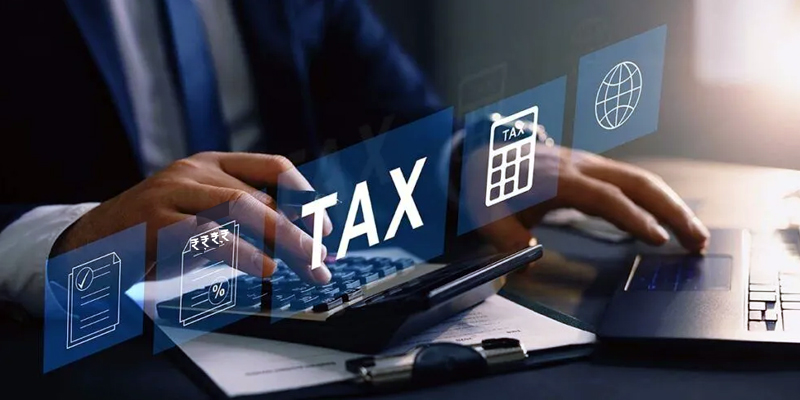
Please Wait transaction is in process, don't refresh page and do not press back button.
File your ITR Now and Claim Early Refund

A tax pay rebate is a refund that you are eligible for if the taxes paid by you exceed your tax liability. if your tax liability Amount Rs. 30,000, but if the bank pays the Government a TDS that amounts Rs. 40,000 on your behalf, so you are eligible for tax rebate.
What is Income Tax Rebate
Here are some key details about income tax rebates:
Purpose:
Income tax rebates are typically introduced to achieve specific policy goals. These goals may include boosting economic growth, incentivizing certain behaviors (such as saving or investing), providing relief to low-income individuals or families, or supporting particular industries or sectors.
Types of Rebates:
- Percentage-Based Rebates:
In this type of rebate, taxpayers receive a reduction in their tax liability based on a percentage of their income or tax owed. For instance, a government might offer a 10% rebate on income taxes for individuals earning below a certain income threshold.
- Refundable Rebates:
Some rebates are refundable, meaning that if the rebate amount exceeds the taxpayer's total tax liability, the excess amount is refunded to the taxpayer.
- Non-refundable Rebates:
Non-refundable rebates can only reduce the taxpayer's tax liability to zero; any excess rebate amount is not refunded to the taxpayer.
Implementation:
Income tax rebates are typically implemented through changes to tax laws, regulations, or administrative procedures. Governments may introduce rebates as part of broader tax reform initiatives, annual budgetary measures, or specific legislation targeting certain economic or social objectives.
Eligibility Criteria:
Eligibility for income tax rebates may vary depending on the specific rebate program and its objectives. For example, rebates targeting low-income individuals or families may have income thresholds or other eligibility criteria based on factors such as household size, employment status, or dependency status.
Duration:
Income tax rebates can be temporary or permanent, depending on the government's objectives and fiscal considerations. Temporary rebates may be introduced as short-term measures to address specific economic challenges or to provide immediate relief during times of crisis.
Economic Impact:
Income tax rebates can have various economic impacts, depending on how they are designed and implemented. They can stimulate consumer spending, boost investment, support targeted industries, and mitigate the impact of economic downturns by providing relief to taxpayers facing financial hardships.
Types, Eligibility of Tax Rebate
Earned Income Tax Credit (EITC)
Type: The EITC is a refundable tax credit designed to assist low-to-moderate-income working individuals and families.
Eligibility: Eligibility for the EITC depends on factors such as earned income, filing status, and the number of qualifying children. Generally, individuals or families with low-to-moderate incomes are eligible, but specific income thresholds and phase-out limits apply.
Child Tax Credit (CTC):
Type: The Child Tax Credit provides a tax credit for each qualifying child under the age of 17.
Eligibility: Eligibility for the CTC depends on factors such as the age of the child, relationship to the taxpayer, and the child's residency status. There are income thresholds and phase-out limits for eligibility.
Property Tax Rebates:
Type: Property tax rebates provide relief to home owners or renters by reducing their property tax liability.
Eligibility: Eligibility for property tax rebates may depend on factors such as income, age, disability status, homeownership status, and residency. Eligibility criteria can vary by jurisdiction.
Energy Efficiency Tax Credits:
Type: These tax credits incentivize investments in energy-efficient improvements for homes or businesses.
Eligibility: Eligibility may depend on factors such as the type of energy-efficient improvement made (e.g., installing solar panels, upgrading insulation), the cost of the improvement, and whether the improvement meets specified energy efficiency standards.
Education Tax Credits:
Type: Education tax credits, such as the American Opportunity Tax Credit (AOTC) and the Lifetime Learning Credit (LLC), provide tax incentives for qualifying education expenses.
Eligibility: Eligibility for education tax credits may depend on factors such as enrollment status, educational expenses paid, the institution attended, and income level. Income thresholds and phase-out limits may apply.
Health Insurance Premium Tax Credits:
Type: These tax credits help lower-income individuals and families afford health insurance premiums through the Health Insurance Marketplace.
Eligibility: Eligibility for premium tax credits depends on factors such as household income, family size, and access to employer-sponsored health coverage. Specific income thresholds and affordability benchmarks apply.
Small Business Tax Credits:
Type: Various tax credits may be available to small businesses for purposes such as hiring certain groups of workers (e.g., veterans, individuals from disadvantaged backgrounds), providing health insurance to employees, or investing in research and development.
Eligibility: Eligibility criteria for small business tax credits can vary depending on the specific credit program. Factors such as the size of the business, the nature of the activity or investment, and compliance with program requirements may determine eligibility.
Latest Post
House Rent Allowance (HRA) Exemption in ITR
11-February-2025
Tractor Insurance: Why It’s Essential for Your Tractor?
17-January-2025
Bike Insurance: How to file two wheeler insurance claim
15-January-2025
Tags